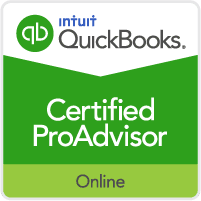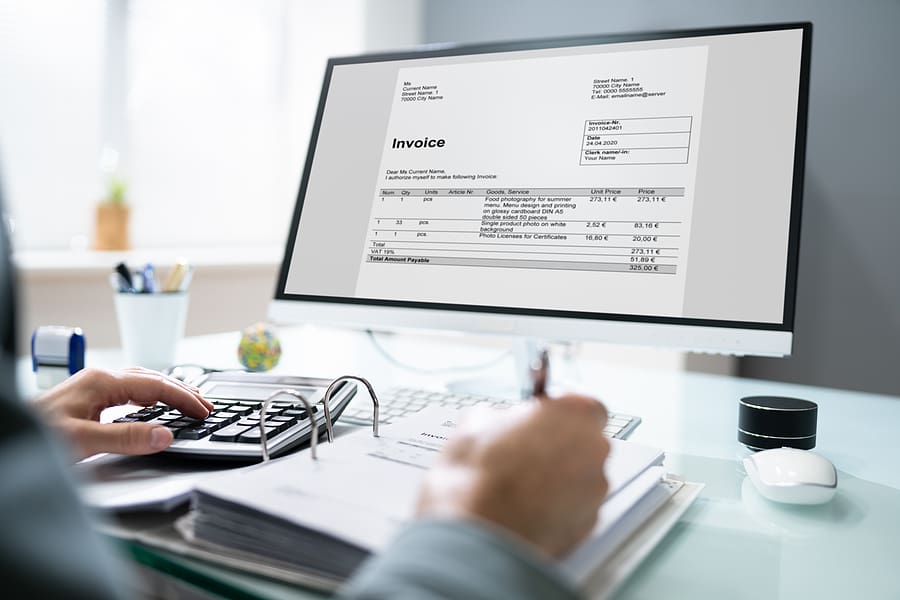Invoicing Best Practices for Small Businesses
For small businesses, efficient invoicing isn’t just sending out bills for services rendered. It’s a critical component of your financial health and client relationship management. Let’s explore the best practices for invoicing that can help ensure your business stays In Balance.

Importance of Efficient Invoicing
Efficient invoicing ensures a steady cash flow, minimizes errors, and contributes to a professional image. It not only reflects your business’s organizational skills but also your commitment to transparency and reliability. It’s a direct line to fostering trust and encouraging timely client payments.
Clear Terms and Policies
- Set Payment Terms: It’s crucial to communicate precisely when you expect to receive payment from your clients. Whether upon receipt of the invoice, within 30 days, or another specified timeframe, being upfront about your payment terms sets clear expectations. This helps in planning your cash flow and maintaining a professional relationship with your clients by avoiding any confusion or misunderstandings about payment deadlines.
- Outline Late Penalties: Late payments can significantly disrupt your cash flow, which is detrimental to small businesses. Clearly communicate the consequences of late payments in your invoices and contracts to mitigate this. Specify any interest rates or late fees that will apply and after how many days past the due date these penalties will begin to accrue. This transparency encourages clients to prioritize payments to avoid extra charges, helping you maintain a steady cash flow.
- Clarify Payment Methods: Providing your clients with multiple payment options makes it easier for them to settle their invoices and speeds up the payment process. Whether you accept bank transfers, online payments, checks, or credit cards, clearly outline each payment method you take. Include necessary details such as account numbers, online payment links, or addresses for mailing checks. Offering and explaining various payment options ensures a smoother transaction process, leading to quicker payments and enhanced client satisfaction.
Professional Invoices
- Include Essential Details: An effective invoice leaves no room for confusion. It should feature your business name, contact information, and clients to facilitate easy communication. The date and a unique invoice number are crucial for record-keeping and tracking payments. Additionally, providing a detailed list of services or products, including quantities and prices, ensures transparency and helps avoid disputes, making the payment process smoother for both parties.
- Customize for Your Brand: An invoice isn’t just a payment request; it’s also a reflection of your brand. Customizing your invoices with your logo, brand colors, and professional layout can leave a lasting impression on your clients. This attention to detail enhances your brand’s credibility and professionalism. A well-designed invoice can reinforce your brand identity and contribute to a cohesive customer experience, from the initial service to the final payment.
- Use Invoicing Software: Leveraging invoicing software is a game-changer for streamlining your billing process. With features designed to automate and organize, these tools can save you time and reduce errors. They offer templates that can be customized to fit your brand, ensure consistency across all invoices, and often include functionalities for tracking payments and sending reminders. Investing in invoicing software means dedicating more time to growing your business while trusting the software to handle the complexities of invoicing and payment tracking.
Accuracy is Key
- Double-check Details: Before sending an invoice, ensure all information is correct, from client contact details to the list of services provided. Accuracy prevents payment delays.
- Itemize Products/Services: Break down charges clearly, listing each service or product, quantity, and cost. This clarity helps clients understand what they’re paying for.
- Include Taxes and Discounts: Specify any taxes or discounts applied to the invoice to avoid confusion and ensure clients see the value they’re getting.
Timely Invoicing
- Send Promptly: To maintain a steady cash flow, issue invoices immediately after completing a service or product delivery. Prompt invoicing signals professionalism and encourages timely payments.
- Automated Reminders: Implement invoicing software that automates reminder emails for due and overdue payments. This helps maintain consistency in your follow-up process, reducing the likelihood of missed payments.
- Follow-Up: Personal follow-ups on unpaid invoices show your clients that you value their business and courteously remind them of their obligations, often prompting immediate action.
Stay Organized
- Establish a Tracking System: Implement invoicing and accounting software to monitor the status of each invoice, track payments received, and identify any outstanding amounts. This helps in financial planning and ensures accuracy.
- Maintain Clear Records: Accurately record every transaction, noting the dates, amounts, and client communication. This meticulous approach safeguards against disputes and aids in financial audits.
- Use Accounting Software: Opt for an accounting software solution encompassing invoicing functionalities. This integration streamlines financial operations, making management more efficient and less error-prone.
Open Communication Lines
- Address Inquiries Promptly: Ensure you’re accessible to address any queries or concerns regarding invoices swiftly. Prompt responses not only resolve issues faster but also enhance customer satisfaction.
- Foster Trust: Open and transparent communication forms the cornerstone of trust. Being honest and responsive, lays the foundation for lasting, strong client relationships.
Wrapping Up: Strengthen Your Business with Solid Invoicing Strategies
Invoicing efficiently is crucial for maintaining your small business’s financial health and client satisfaction. Setting clear terms and policies, ensuring your invoices are professional and accurate, invoicing promptly, staying organized, and keeping communication lines open, will make your business successful. Implement these strategies to ensure your invoicing process supports your business goals and helps you maintain a healthy cash flow. For further resources and assistance, consider exploring software solutions and financial management services that can take your invoicing to the next level.
Why Partner with In Balance Bookkeeping Solutions?
In Balance Bookkeeping Solutions offers tailored invoicing solutions to keep your small business in perfect balance. With expertise in setting clear invoicing terms, professional customization, and streamlined automation, we ensure efficient invoicing practices that foster timely payments and strengthen client relationships. Our meticulous attention to accuracy and timely follow-ups on unpaid invoices guarantees a smooth cash flow. We leverage our tracking systems and accounting software to maintain organization and transparency, while our commitment to open communication builds trust and satisfaction. Elevate your invoicing process with In Balance Bookkeeping Solutions and perfectly harmonize your business finances. Contact us today to learn more.






